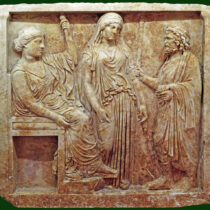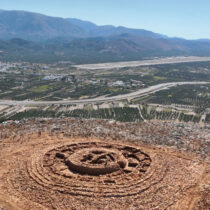This intensive two-week course, based on site-visits, lectures, seminars and practical classes, introduces students to the Linear B script used in the Late Bronze Age Aegean and to its value in enriching our interpretation of this period largely known through archaeology.
It focuses on developing basic skills in writing and reading Linear B documents, exploring the workings of the administrative system that the script supported, and on the insights into economy, society and material production that data on the documents can offer in combination with archaeological data.
It includes visits to the Mycenaean Palaces of Mycenae and Tiryns, as well as the Thebes Museum and the sites of Orchomenos and Gla, plus a class in the National Museum’s Prehistoric collection. The course aims to give students a first-hand appreciation of the materiality of documents written in a syllabic script on clay and give students an appreciation of the role Linear B has played in the history of interpretation of the Late Bronze Age Aegean. By the end of this module students will have the ability to read with ease documents written in the Linear B script, an understanding of the practicalities of writing on clay and the ability critically to contextualise the information offered by Linear B documents within a wider understanding of the social and material worlds of the Late Bronze Age Aegean.
The course fee of £830 includes accommodation in shared rooms at the BSA, where self-catering facilities are available, 24 hour access to the superb library, entry to all sites and museums, BSA membership, travel to sites, lunches and three evening meals. Travel to and from Greece is the sole responsibility of the course participant.
The course is limited to 12 places, and open to students of any university pursuing postgraduate study at doctoral, Masters or Diploma level.
Further information can be obtained from the BSA website (www.bsa.ac.uk). Completed application forms and an academic reference letter should be emailed to the Assistant Director, Dr. Chryssanthi Papadopoulou, ([email protected]) no later than January 31st 2019.





